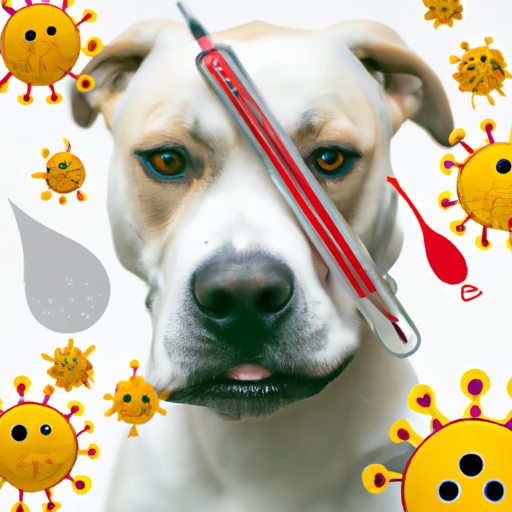As a devoted caregiver to your furry friend, it’s crucial that you understand the potential dangers that can affect their health. One such threat is Parvovirus, commonly referred to as Parvo. Let’s unravel the mystery behind this disease, its causes, and how you can protect your beloved pet.
Understanding Parvovirus
Parvovirus is a highly contagious viral disease that can have deadly consequences if not treated promptly. It primarily targets puppies aged between six weeks to six months, but can also affect adult dogs that are not vaccinated.
The virus manifests in two forms:
- Intestinal form – This is the most common type, characterized by vomiting, diarrhea (often bloody), weight loss, and lack of appetite.
- Cardiac form – Less common but more deadly, it attacks the heart muscles of very young puppies, often leading to death.
What Causes Parvo in Dogs?
Parvo spreads through direct contact with an infected dog or by indirect contact with a contaminated object. Your dog can contract the virus by simply sniffing another dog’s feces or from a human’s shoes that have come into contact with infected feces. The virus is resilient, surviving on objects for several months, making it incredibly contagious.
How to Protect Your Dog from Parvo
Prevention is always better than cure. Here are some ways to protect your dog from Parvo:
- Regular Vaccination: Vaccination is the most effective method of prevention. Puppies should receive their first vaccine between 6-8 weeks of age, followed by booster shots every 3-4 weeks until they are 16 weeks old. Adult dogs should also be kept up-to-date with their vaccinations.
- Avoid High-risk Areas: Limit your puppy’s exposure to places frequented by many dogs, such as dog parks or kennels, until they’ve completed their vaccination schedule.
- Maintain a Clean Environment: Regularly clean and disinfect your home, especially if a sick dog has been present.
Recognizing the Symptoms of Parvo
It’s vital to recognize the symptoms of Parvo early to give your dog the best chance of survival. If you notice any of the following symptoms, seek immediate veterinary attention:
- Lethargy
- Severe vomiting
- Loss of appetite
- Bloody diarrhea
- Fever
Treating Parvo in Dogs
Parvo is a serious illness and requires immediate veterinary care. Treatment often involves:
- Intravenous fluids to treat dehydration
- Antibiotics to control secondary infections
- Medications to control vomiting and diarrhea
- Nutritional support to maintain strength
Recovery can take several days to weeks and will require plenty of rest and isolation from other dogs.
Frequently Asked Questions (FAQs)
Q: Can humans catch Parvo from their dogs?
A: No, humans can’t contract the Canine Parvovirus.
Q: Can a dog get Parvo more than once?
A: It’s rare, but yes, a dog can get Parvo more than once.
Q: How long does Parvo last in the environment?
A: Parvo can survive in the environment for over a year under the right conditions.
Q: Can Parvo be treated at home?
A: No, Parvo is a serious illness and requires immediate professional medical attention.
Remember, as a caregiver, the safety of your pet is in your hands. Stay vigilant, keep them vaccinated, and ensure they have a clean, safe environment.



